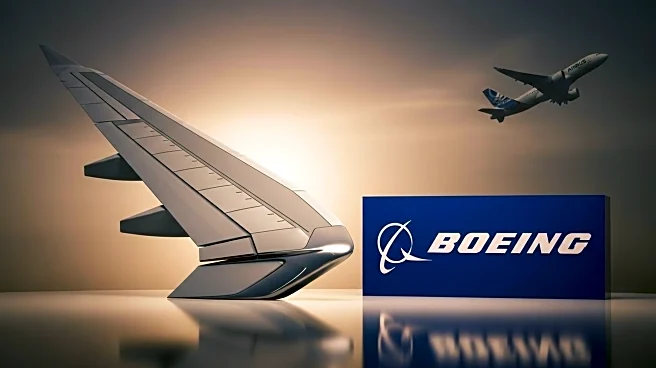What's Happening?
The UK Competition & Markets Authority (CMA) has cleared Boeing's acquisition of Spirit AeroSystems, citing the sale of certain Spirit assets to Airbus as a key factor in preventing market distortion. The CMA examined potential harm scenarios, including restrictions on aerostructure supply to Airbus and military aircraft makers, and disruption to the business jet market. Spirit is selling its A220 wing and mid-fuselage activities in Belfast and A350 center fuselage production in Kinston, North Carolina, to Airbus. Boeing will retain other operations, including Bombardier business jet structures and nacelle inlets for Rolls-Royce engines. The CMA found no concerns regarding competitive harm, as the sale to Airbus mitigates potential issues.
Why It's Important?
The clearance of the Spirit-Boeing merger by the CMA is significant for the aerospace industry, as it ensures continued competition and innovation. By selling certain assets to Airbus, Spirit and Boeing avoid potential monopolistic concerns, maintaining a balanced market environment. This decision supports the strategic interests of both companies, allowing Boeing to expand its capabilities while ensuring Airbus remains competitive. The merger's approval also reflects the importance of regulatory oversight in large-scale acquisitions, ensuring that market dynamics are preserved and consumer interests are protected.
What's Next?
With the merger cleared, Boeing and Spirit AeroSystems are expected to finalize the acquisition and asset sale to Airbus by the fourth quarter. This will likely lead to operational changes and strategic realignments within both companies. Stakeholders, including the UK Ministry of Defence and other industry players, will monitor the merger's impact on supply chains and market competition. The aerospace sector may see further consolidation as companies seek to optimize resources and expand their market presence.











